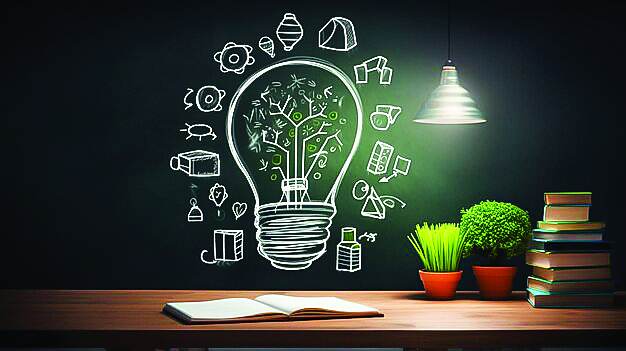With the widespread use of digital learning resources in India, the educational sector has gone through a remarkable digital transformation. Initially, technology platforms served to assist; however, today, many of them have taken over the classrooms completely, largely due to the two-year-long COVID-19 pandemic. This evolution has reshaped higher education, prompting instructors to exploit new educational approaches that fit the needs of modern learners. Therefore, old teaching techniques are getting out of fashion while new ones are being consistently improved with skill formation. In this rapidly evolving landscape, EdTech has become a key factor in accelerating the process of transitioning from the traditional situation to an innovative and dynamic educational environment. According to Grand View Research, the global e-learning services market size was about $217.57 billion in 2022 and is anticipated to grow annually by a compound growth rate (CAGR) of 18.6% from 2023 to 2030.
A conventional approach to learning that is predominantly based on passive learning through lectures and exams is not enough to equip students with the skills essential for solving problems in today’s ever evolving society. However, with knowledge readily available now as never before, the focus must be on helping students develop critical thinking, problem-solving, and collaborative skills, where EdTech offers innovative approaches. As a result, it is imperative to transform the current approach and create a more dynamic and participatory learning scenario that would help students solve practical problems based on their knowledge. Therefore, education technology and other cutting-edge approaches can be utilised by teachers to fortify students with the abilities that are vital for performing better in their careers.
Here’s a look at the innovative learning approaches in education
Experiential Learning
Students learn through “learning by doing” i.e., experiential learning, which involves internships as well as service projects. Therefore, they can bridge the gap between theories and practice which is one of the major elements in effective learning. This process shows the practical applicability of the learned concept in the real world and also develops the right skill that is required by the employees in the workplace. Therefore, students develop a more practical understanding of educational principles through field trips, which, on the other hand, prepares them for life outside the classroom.
Collaborative Learning
Collaborative learning is an interactive process where students join hands and perform tasks in groups. It strengthens teamwork and communication abilities and creates the atmosphere of a classroom community. The fact that students can learn from their peers is the biggest benefit. Furthermore, by cooperating with classmates with diverse backgrounds, students can better appreciate the diverse perspectives that help them better understand the course content. This not only opens up an interactive learning environment but also equips students with valuable skills of interaction and collaboration that they will need for their academic and professional careers.
Flip the Classroom
In a flipped classroom, students study lectures at home and work on assignments during the class. This approach instigates group work, thereby allowing the students to work in groups and practice together. In this scenario, teachers shift to a more facilitative position, providing individualised help and insights as students work on their own or in groups. Thus, the flipped classroom is a student-centred approach to learning that aims to develop a sense of independence in students and fosters teamwork and interaction among their peers.
All Things Considered!
Edtech platforms have revolutionised education by enabling students to access it regardless of their location. Today, students can freely select their courses and learn at their own speed. Additionally, edtech enhances the quality of education by enabling educators and learners to collaborate to develop lessons through animations, interactive exercises, and videos. This collaboration between education and technology helps students prepare for exams and opens doors for job opportunities.
The author is the Founder of Birla Brainiacs.







